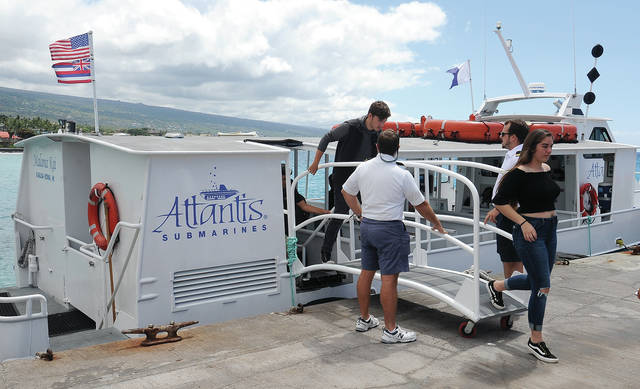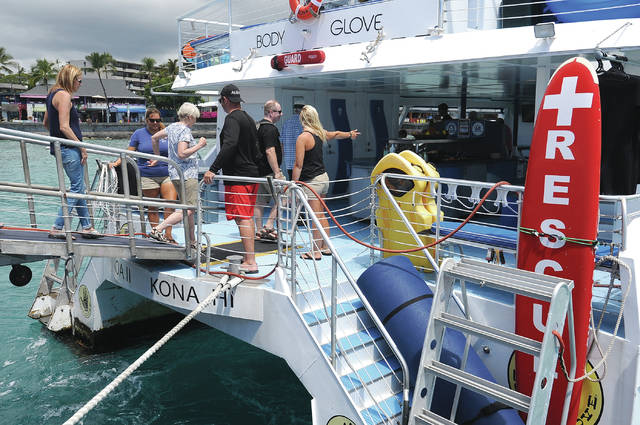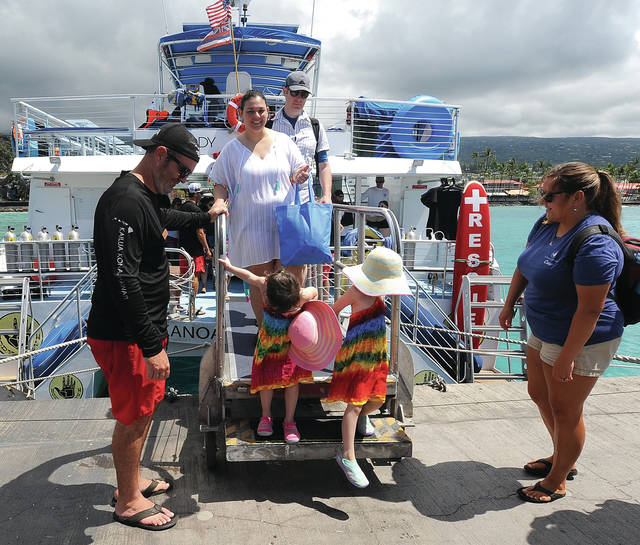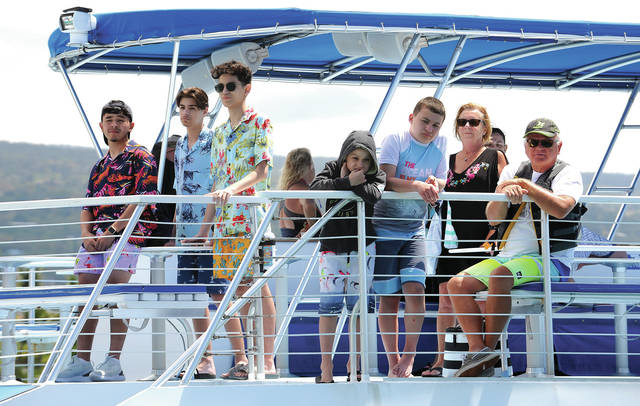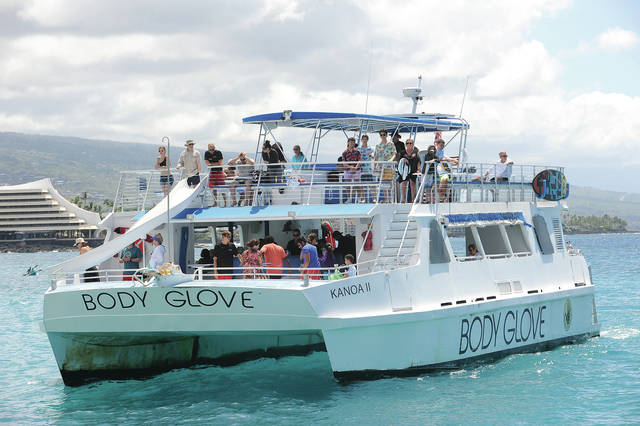Bill seeks lifeguards for tour boats
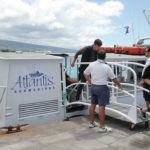
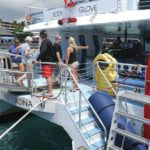
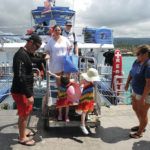

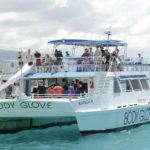
KAILUA-KONA — A bill to kick off the process of requiring certified lifeguards on boats that take tourists onto the water for snorkeling and other activities is making its way through the state Legislature.
The proposal, advocates say, is critical to improving safety in a state where drowning is among the leading causes of fatal injuries, particularly among visitors. During the first half of this decade, most visitor drowning deaths happened while snorkeling, according to the Department of Health.
“You need to have people that are on the boat that are trained to recognize problems before they become dire emergencies,” said Keller Laros, scuba instructor at Jack’s Diving Locker and founder of the Manta Pacific Research Foundation. “And that’s where the lifeguard training comes in.”
The bill would require the Department of Land and Natural Resources to adopt new rules for commercial operators that take customers into state waters for activities like snorkeling, scuba diving, kayaking and surf lessons.
Those rules would require every excursion or tour group to have at least one person who is either a rescue diver or lifeguard certified by a nationally recognized certification organization.
That wouldn’t apply to vessels that are inspected by the Coast Guard and that have at least one crew member aboard who is lifeguard certified in CPR, use of an automated external defibrillator (AED) and basic first aid.
It would also require every vessel used to transport customers be equipped with a backboard, emergency oxygen and an AED among its onboard safety equipment.
“I think it’s going to save lives,” Kara Osada-D’Avella, owner of Island CPR, said of the proposal.
She said her company, with a primary shop in Kona, does lifeguard certifications for several operations already on the island and has seen an increased interest in lifeguard certification.
Laros said he wants to see the wording of the bill clarified to require every vessel — uninspected or not — to have a lifeguard on board.
“It doesn’t matter — if you’re running the trips, whether you’re Coast Guard-inspected or non-inspected — you have to have at least one crew on board that is trained as a lifeguard,” he said, adding certification must also be up-to-date.
The DLNR opposed the bill in testimony submitted to the House Committee on Finance. The agency argued the Coast Guard, rather than the state, ought to be the one to implement new measures.
The Ocean Tourism Coalition, which represents more than 300 ocean tour operators throughout the state, voiced “conditional support” of the bill. While the group supports the bill’s intent, wrote coalition president James E. Coon, it also asked for some changes.
“It is very difficult to make a one-size-fits-all-rule,” wrote Coons. “They do not need additional DLNR oversight. DLNR will not issue their commercial operating permit without (Coast Guard) approval.”
The recommended changes included amending the text related to Coast Guard inspected vessels to say that they must have at least one crew member on board who is trained (rather than “lifeguard-certified”) in CPR, use of an AED and basic first aid.
But Laros and Osada-D’Avella said lifeguard certification is much more than just having some skills training.
“‘Trained’ doesn’t have any specific performance criteria,” Laros said. “When you go in an American Red Cross lifeguard class, there’s criteria that people have to meet.”
Osada-D’Avella said while a CPR/first aid course will teach a person CPR and how to recognize emergencies like heart attack and stroke, lifeguard certification takes all of that to the next level.
“When you take the leap to lifeguard, you’re turning somebody from a lay rescuer to a professional rescuer,” she said. “And that’s also really huge when you think about it, because a professional rescuer, you’re learning also how to work as a team. You’re learning how to do pulse checks. You’re learning how to do things on a higher level.”
Furthermore, professional rescuers are able to get liability insurance.
And this bill, she said, has the potential to ensure excursions are crewed with people who not only know how to respond to emergencies, but also to recognize and prevent them in the first place.
Maggie Brown, president and owner of Body Glove Ocean Adventure, said her business already has its own requirements crew must meet so they’re able to respond to emergencies.
If crew isn’t hired already knowing CPR and other training, she said, the company holds quarterly classes so they are able to administer CPR, use defibrillators and apply first aid should the need arise. Crew members also must be able free dive 30 feet.
And during snorkels, she said, they have two designated crew members with a rescue board, float and fins on, stationed to respond immediately.
The bill, she said, is “headed in a very good direction.”
“I think the definition of what a lifeguard is needs to be a little bit more defined,” she said, adding the cost of lifeguard certification courses could exceed what an operator can pay or limit the pool of potential hires.
The bill crossed over to the Senate on March 1 after passing through the House of Representatives and has since been referred to the Senate Committee on Water and Land and the Senate Committee on Ways and Means.

